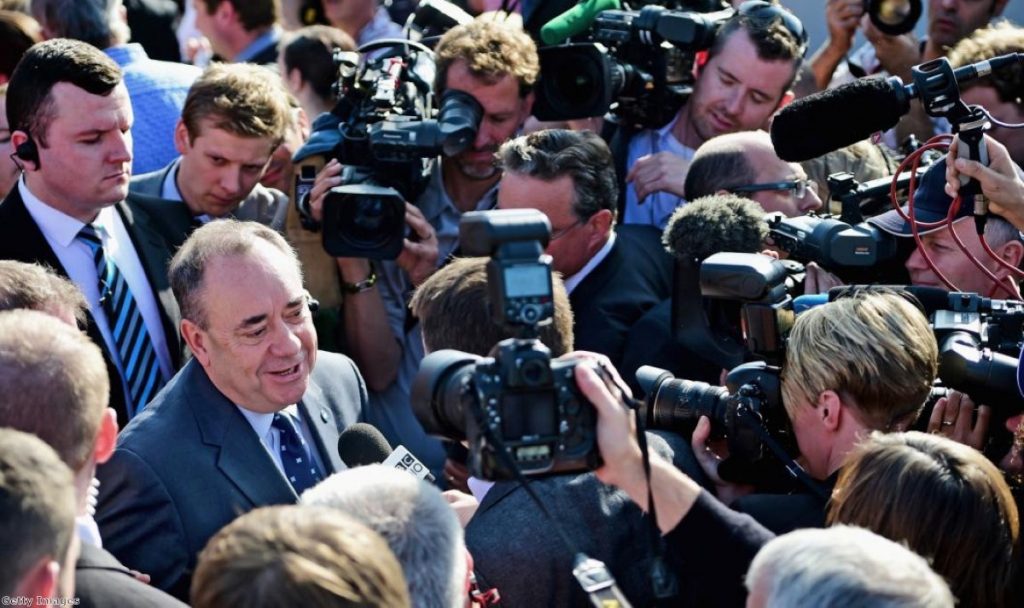‘Westminster’: The toxic word that could help Salmond to victory
New polling out today reveals an old truth: that voters don't like politicians much. But these numbers draw attention to a more pressing problem. Persuading the Scottish to vote 'no' next week isn't much helped by the way Westminster politicians do business.
Populus talked to 2,040 Brits this time last month for the Institute for Government, and the results aren't good. It found the public generally don't believe the parties keep their manifesto promises. Instead they prioritise getting re-elected, scoring political points and making big announcements. Voters would rather they work on fulfilling election promises, working to get taxpayers the best value for money and taking decisions in the country's long-term interest.
None of this is new. That doesn't make it irrelevant to the crisis now engulfing the Better Together campaign.
The anti-politics vote which propelled Ukip to an unprecedented victory in this year's European elections could play a decisive role north of the border next Thursday, too. It fits in with the nationalists' rhetoric about Scottish values being different from those of the elites of far-away Westminster.


"Today what we have got is an example of Team Scotland against Team Westminster," Alex Salmond declared this morning.
"The breadth and reach of the 'Yes' campaign is there for all to see – it is not about the Scottish National Party, the Green Party or political parties. It goes right through the whole sector of Scottish society.
"What we are seeing today on the other side is Team Westminster jetting up to Scotland for the day because they are panicking in the campaign."
Poll shows voters want politicians focused on the long term. A Programme for Effective Govt http://t.co/alNuHur723 pic.twitter.com/3GYA171QxP
— Institute for Gov (@instituteforgov) September 10, 2014
David Cameron is often talked about as the most damaging of the three leaders. His old Etonian background and downright Toryness do not exactly make him assets in this campaign. But Nick Clegg's record of inconsistency might make him a decent alternative candidate.
The Liberal Democrats have not had a smooth ride in power. Their tuition fees error – surely the broken promise of the last general election – is not going to help Scottish voters' views of Westminster politics. Coalition, far from empowering the electorate, seems to have deepened their suspicions that they don't really have a say in who runs the country.
It's a quirk of history that this referendum is taking place at a time when we have a coalition running the Commons and a party with an overall majority in Holyrood. Both are deviations from the norm. And both undermine the unionist cause.
Salmond's anti-Westminster rhetoric is actually a bit of a smokescreen. Get rid of these pesky politicians, he is saying – while conveniently glossing over the fact independence would only replace one lot of elected representatives with another. As the Labour party's list of 100 SNP broken promises showed in 2011, the SNP aren't immune to criticism either.
But in the remaining days of this campaign, that doesn't matter much. "In the league table of people not to send to Scotland," one disgruntled (but enlightened) Liberal Democrat MP said after this afternoon's PMQs, "you'd put Lady Thatcher first, David Cameron second, Nick Clegg third – and Ed Miliband not far behind them". The political leaders, by grouping themselves together in this theatrical move, are playing into the nationalists' hands.

